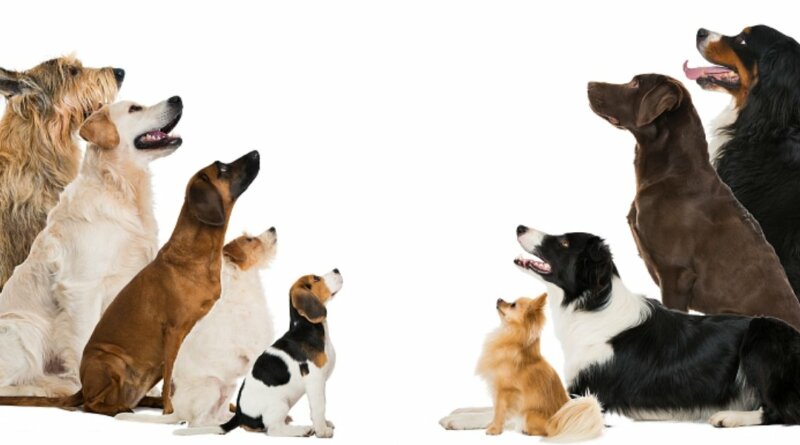What Dog Is Best for Me? Tips On How To Choose Your Next Pet – Top Dog Tips
There has been a drastic rise in pet ownership over the past decade. While some of us are just happy adopting any mutt that needs a good home, others are particular about the dog breed they choose to add for their family. Naturally, the first question that crosses any potential pet parents mind is, “What dog is best for me?”
According to the American Kennel Club, there are over 340 dog breeds known throughout the world. Types of dogs vary tremendously in appearance, temperament, grooming needs, and countless other traits. This is why most people don’t know where to begin when choosing the right dog breed.
Learning about a dog’s breed will tell you a lot about them. Of course, there are exceptions to any rule. Researching a potential pet’s breed can tell you about:
- size
- activity level
- temperament
- trainability
- grooming needs
…and so much more! It’s imperative for new owners to research the type of dog they are thinking of adopting. You can find lots of useful information on the internet, in breed-specific books and from experts in the dog industry. Your veterinarian, local groomers and dog trainers can all be excellent resources when trying to find the best breed for you.
What Dog Is Best for Me?
tips on how to choose your next pet
 Purebred vs. Crossbred vs. Mixed Breed
Purebred vs. Crossbred vs. Mixed Breed
Purebred dogs refers to a dog of a modern breed with a documented pedigree. As long as you adopt from a reputable breeder, a purebred dog will have fairly predictable traits. Keep in mind that predictability and compatibility are two different things.
Reading about a certain breed will give you a very good idea of what to expect from a purebred puppy. Educate yourself on your top choices, because you need to choose a breed that is actually compatible with your lifestyle.
Crossbred dogs have two purebred parents, but each parent is a different breed. For example, a Golden Doodle has one Golden Retriever parent and one Poodle parent. Crossbred dogs will typically have predictable traits for that cross of breeds, meaning that all Golden Doodles will have similar traits.
Thanks to the wonder of genetics, the offspring of crossbred dogs are NOT crossbred dogs. If a Golden Doodle mother and Golden Doodle father have a litter of puppies, the puppies are not Golden Doodles. Because both parents are not purebred dogs, the puppies are mixed breed dogs.
Mixed breed dogs, also called “mutts”, are simply dogs whose parents were not purebred. These dogs are frequently overlooked by potential pet owners. Mutts have a lot more genetic variation than purebreds or crossbreds, which means you can’t really know ahead of time what kind of traits your puppy is going to have when he grows up.
However, mixed breeds tend to be a lot more “balanced” than pure breeds. The intense traits that were carefully bred into pure dog breeds get “watered down,” which can be a good thing. Mutts will not be as sensitive as Chihuahua’s, as demanding as Labrador Retrievers or have as many genetic conditions as purebred dogs.
RELATED: 20 Most Expensive Dog Breeds

Traits to Consider
For those wanting to know how to choose a dog breed and who are considering pure or mixed breeds, there are some traits you should be looking for. Think about your lifestyle and the wants/needs of you and your family members. You should also be considering the needs of any other pets in your home.
Size
Some people find tiny dogs cute, but they are also fragile, and can be very difficult to train. Keep in mind that the smaller the dog, the smaller his bladder. Tiny dogs can be very difficult to potty train. Unless you have lots of time and patience to raise and care for a tiny dog, consider getting a small dog instead.
Quite the opposite, giant dogs will certainly make a statement when they enter any room. The downside is that they grow up slowly and can act like mischievous puppies for 2-3 years! Do you think that your home offers enough room for a giant breed to romp and play? You also better be sure that you can physically handle a 100+ pound dog.
It’s not just the physical size of the dog that you need to consider. Larger dogs eat more food and make bigger messes. Products for larger dogs (like beds, clothing and harnesses) are typically more expensive than smaller options. When it comes to size, there is a lot to consider.
Grooming needs
Some breeds require minimal grooming. Other dogs have long, luxurious coats, and need regular brushing and grooming. Getting a dog that sheds a lot will also mean vacuuming very frequently and washing bedding on a regular basis.
You’ll need to consider whether or not you have the time to keep up with high maintenance grooming needs. If not, can you afford to pay for a professional dog groomer’s services.
Exercise needs/Activity level
Failing to give a dog the exercise that he needs is one of the most common causes of canine behavior problems. One of the most important things to consider when deciding on the best dog breed for you is how much time and energy you have to walk, play and exercise with your new pet.
Of course, puppies have higher energy levels than older dogs, but some breeds also have higher energy levels than others. Some working dog breeds, for example, have truly astounding exercise requirements. Do not underestimate the commitment this will require, or you will end up with an uncontrollable pet that will not fit into your lifestyle.
Consider your lifestyle when selecting any new pet. If you’re an active person who would love to take your pup hiking, swimming or running, you’ll need to choose a pooch that can keep up. If you’re a homebody that wants a snuggle buddy to binge watch TV with, you’ll need to choose a dog that will be happy curling up on the couch for hours on end.
Temperament and trainability
Purebred dog personalities are typically quite predictable. Labs are fun-loving goofballs that love to play and go on adventures. Almost all hounds love to howl and can be difficult to keep in the yard. Weimaraners tend to be nervous and skittish.
Every canine breed has its own specific traits. The question “What dog is best for me?” is not easily answered. It will take a lot of research and time, but will be well worth it. Be honest with yourself about what responsibilities you want to take on.
SIMILAR: Best Dog Breed Quiz to Help You Choose Your Next Pup
 Age Matters
Age Matters
Most potential new pet owners immediately think about adopting a puppy. Puppies are adorable and lots of fun, but they are also a lot of work. Puppies require more time, attention and structure than most older dogs.
There are lots of benefits to adopting an adult dog, and let’s not forget about all the senior dogs out there. You will already know a dog’s size, grooming requirements and temperament by adopting an adult – none of the guess work that comes with a puppy!
Adult dogs may also already be trained and able to stay home alone without being kenneled. They typically have lower energy levels as well. Not to mention, adult and senior dogs typically don’t get adopted as quickly as puppies. It’ll make you feel good to give one of these dogs a loving home.
I have nothing against puppies, but they are a lot of work. If you’re looking for a more laid back, calm companion, choosing an adult or senior dog may be a better option for you.
READ NEXT: 5 Things Owners Wish They Knew Before Adopting A Dog






